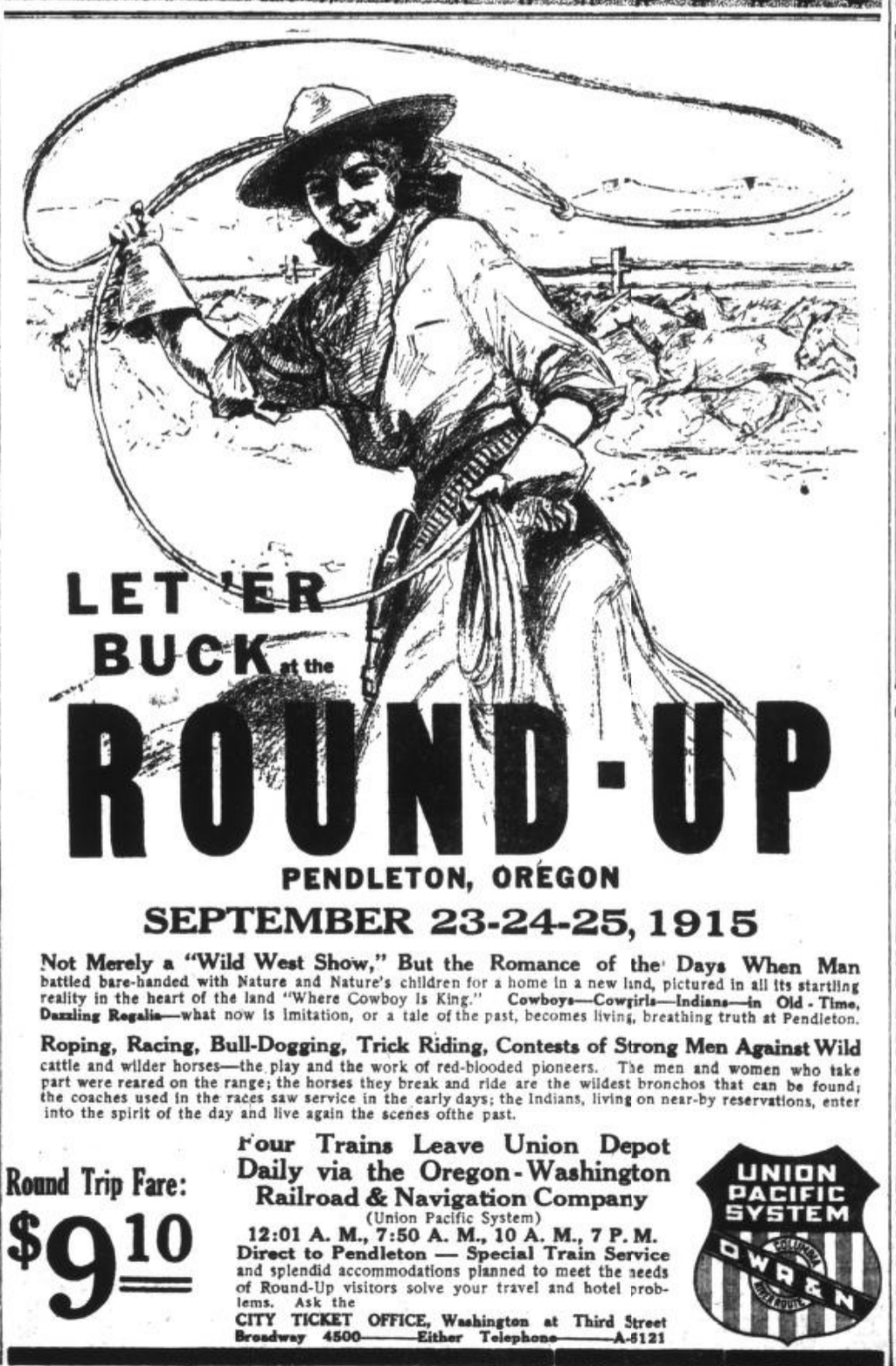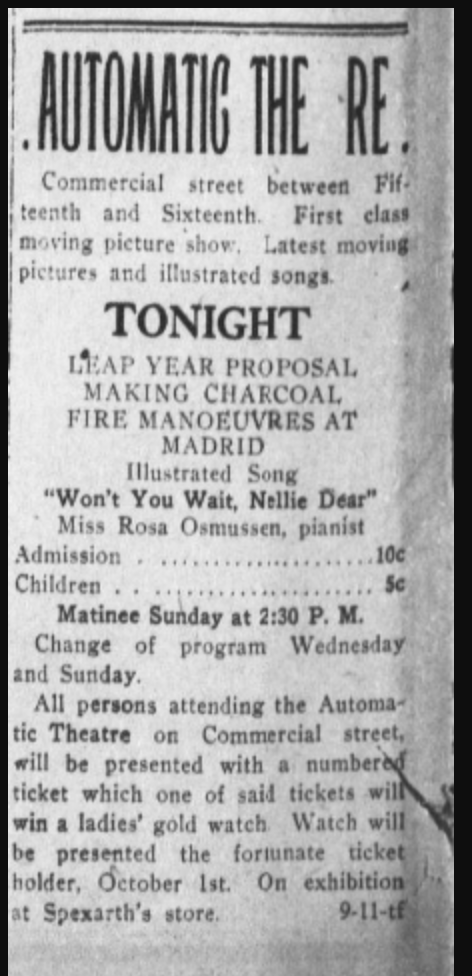The Story of Small-town Rodeo Meets National Fame
How the Annual Pendleton Round-Up became the subject of an American Lifeograph documentary.

The variety of films, shows, and events taking place in theaters

For my blog post, I chose an advertisement article about the Savoy theater in Medford that the Medford Mail Tribune published on October 3, 1908. The Savoy was the second moving picture theater built right after the Bijou. It is an interesting article because it was two days after its first opening on October 1 of 1908.
While today we expect movie theaters just to play movies, this wasn’t always the case. Theaters were more prominent parts of their neighborhoods and hosted all kinds of events. In Tillamook, Oregon in the 1910s, it was not out of the ordinary for films to not play at all on some days at certain theaters. Specifically, at the Gem Theatre, there were quite a few productions from high schools and churches performing things like plays, comedy, and music1.
The sport of boxing has had a tumultuous time throughout its long history in the United States. Fighting through times of extensive regulation from both State and Federal legislatures, the sport has always managed to survive as a popular spectacle. In the early 1900s, boxing was mostly relegated to fights between local sports clubs with minor crowds and promotion. These matches were purely exhibition as officially judged bouts or bouts with payouts were federally illegal, acting as a ban on prizefighting in general.
During the first World War, the United States film industry established itself as a powerhouse both domestically and abroad. The outbreak of war in Europe interrupted the global film market, and Hollywood thrived by filling the holes left by European markets unable to produce or export films during the conflict. However, despite the commercial success and establishment of the industry as something akin to what we know of it today, there were other aspects of moviegoing during this era of note.
On Tuesday, October 12, 1909, the Dreamland Theater was under the new management of J.A. Cooper and his brother Ross. In order to establish the theater, make it well known amongst the people again, and also have it live up to its name. The brothers decided to host a large event that would draw people back into the theater and showcase its new found extravagance, while also bringing a piece of Southern California to Salem, Oregon.
The Oregon theater during its time of operation (1913-1921) was a true hotspot for the people of Pendelton to see a show or a moving picture, of all genres. There is evidence of many different genres from romance to musical. Yet, of all of the advertisements, “Ole The Swede” starring Dave Williams was the one that caught and held my attention.
The Star Theater was located in Roseburg and was in operation for a little over two years from 1908-to 1910. The first image is from The Evening News and was published in 1910, it contains an article about the buying of a vacant lot that was adjacent to the star theater among other establishments like offices and grocery stores. The business that bought the vacant lot paid $25,000 for that portion and in today's money that is $756,000. This image seemed to be in the interest of the person who bought the vacant bought and their theater name was mentioned as almost “free pre

For my post, I chose an ad promoting a program at the Page Theatre in Medford that was published by the Medford Mail Tribune in 1913. It is an interesting artifact for several reasons: one of which is its design. Rather than putting the date, choosing to just have "TONIGHT" could make the reader feel as though it is an event they don't want to miss out on.